

C语言中内存四区模型的本质区别和代码分析
电子说
1.4w人已加入
描述
1、数据类型本质分析
1.1 数据类型的概念
●“类型”是对数据的抽象●类型相同的数据有相同的表示形式、存储格式以及相关的操作●程序中使用的所有数据都必定属于某一种数据类型1.2 数据类型的本质
●数据类型可理解为创建变量的模具:是固定内存大小的别名。●数据类型的作用:编译器预算对象(变量)分配的内存空间大小。●注意:数据类型只是模具,编译器并没有分酤空间,只有根据类型(模具)●创建变量(实物),编译器才会分配空间。2、变量的本质分析
2.1 变量的概念
概念:既能读又能写的内存对象,称为变量;若一旦初始化后不能修改的对象则称为常量。变量定义形式:类型标识符,标识符,…,标识符;2.2 变量的本质
●程序通过变量来申请和命名内存空间int a = 0●通过变量名访问内存空间。3、程序的内存四区模型
流程说明:●操作系统把物理硬盘代码load到内存●操作系统把c代码分成四个区| 栈区( stack):由编译器自动分配释放,存放函数的参数值,局部变量的值等 |
| 堆区(heap):一般由程序员分配释放(动态内存申请与释放),若程序员不释放程序结束时可能由操作系统回收 |
| 全局区(静态区)( statIc):全局变量和静态变量的存储是放在一块的,初始化的全局变量和静态变量在一块区域,未初始化的全局变量和未初始化的静态变量在相邻的另一块区域,该区域在程序结束后由操作系统释放 |
| 常量区:字符串常量和其他常量的存储位置,程序结束后由操作系统释放。 |
| 程序代码区:存放函数体的二进制代码。 |
4、函数调用模型
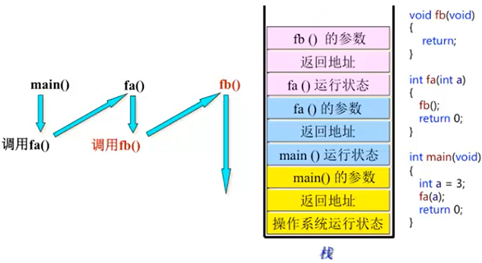
5、函数调用变量传递分析
(1)
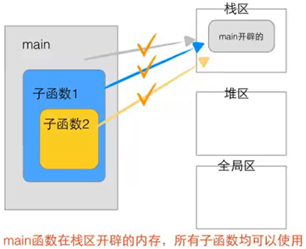
(2)
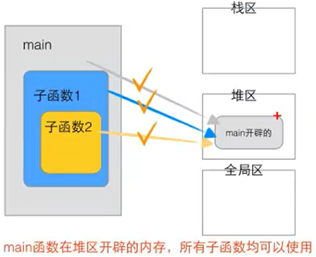
(3)
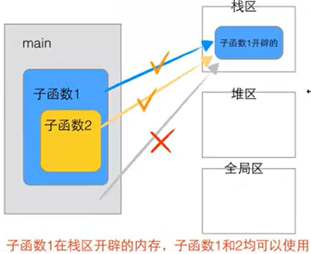
(4)
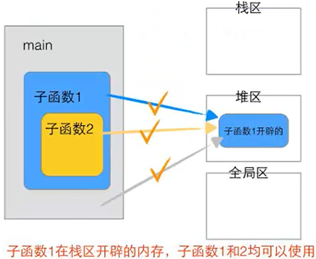
(5)
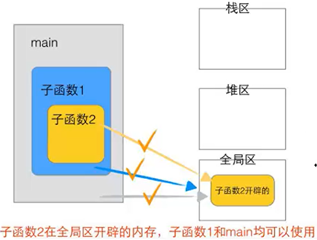
6、栈的生长方向和内存存放方向
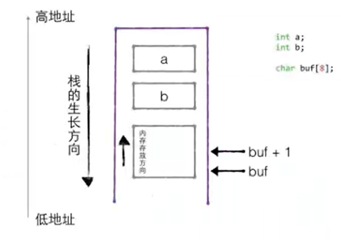
相关代码:02_数据类型本质.c
#define _CRT_SECURE_NO_WARNINGS
#include
03_给类型起别名.c
#define _CRT_SECURE_NO_WARNINGS
#include
04_变量的赋值.c
#define _CRT_SECURE_NO_WARNINGS
#include
05_全局区分析.c
#define _CRT_SECURE_NO_WARNINGS
#include
06_堆栈区分析.c
#define _CRT_SECURE_NO_WARNINGS
#include
07_静态局部变量.c
#define _CRT_SECURE_NO_WARNINGS
#include
08_栈的生长方向.c
#define _CRT_SECURE_NO_WARNINGS
#include
审核编辑:郭婷
声明:本文内容及配图由入驻作者撰写或者入驻合作网站授权转载。文章观点仅代表作者本人,不代表电子发烧友网立场。文章及其配图仅供工程师学习之用,如有内容侵权或者其他违规问题,请联系本站处理。
举报投诉
-
FPGA与ARM的本质区别是什么?2024-04-28 1618
-
线程是什么的基本单位 进程与线程的本质区别2024-02-02 1851
-
C语言中ASCII代码是什么意思?2023-10-25 597
-
C语言中内存四区的本质分析2023-08-26 1154
-
C语言中for循环的用法和应用 C语言中for循环与while循环的区别2023-08-18 4276
-
C语言中的内存四区分析2023-06-19 761
-
嵌入式C语言中堆和栈的区别2023-04-14 2222
-
C语言怎么建立内存的动态分配2023-03-10 1313
-
C语言中数组在内存中如何表示2023-02-15 1427
-
C语言中的char数组和char指针有什么区别?2023-01-29 3547
-
光纤和光缆的本质区别是什么2022-03-23 7074
-
PLC与单片机的本质区别2021-01-13 2378
-
C语言中随机数的生成代码2019-02-20 10979
-
typedef和define的介绍及本质区别2018-04-14 5431
全部0条评论

快来发表一下你的评论吧 !

